
Two weeks after the Norfolk Southern train derailment upended East Palestine, Sen. JD Vance (R-Ohio) filmed a dispatch to the American public from the edge of a creek. Against a backdrop of brown winter forest and gray limestone, Vance used a stick to stir up a plume of oily contamination. “Do not forget these people,” he told the camera.
Freshly elected as the junior senator for Ohio, Vance promoted his video as part of a broader push. In his early tenure, he hoped to help residents—and further himself as a voice for the Appalachian working class—by keeping East Palestine in the public eye. He told the New York Times that the community was like his hometown of Middletown, Ohio: “neglected by the national media and…affected by a lot of dumb policies.” On Fox News, he scolded President Joe Biden to “stop blaming Donald Trump” and “use the powers of the federal government to do the things necessary to help.”
But, despite his efforts, Vance’s warnings seem to have come true. After an intense few months of media maelstrom, the national spotlight has mostly faded—even as East Palestine’s needs remain unmet. Residents continue to await concrete action from their elected officials, including Vance, that would protect their homes and limit risks to their health from lingering pollution.
“I think if [Democrats] were to have come out here and done some work and given us the help we needed at the time, they could have probably swayed a lot of voters.”
The disaster and its aftermath have fostered a complex reaction among members of the community: a broad disillusionment with the government, coupled with a sense of urgency that the system must change. Today, tens of thousands of voters affected by the derailment—including in the crucial swing state of Pennsylvania—will have the opportunity to reflect that experience in the voting booth. For some, the aftermath of the train derailment has upended long-held stances.
“I never in a million, million years, would ever think that this is going to come out of my mouth,” said Jami Wallace, a lifelong Democratic voter, “but I’m going to vote for Trump.”
After the disaster, Wallace took on an activist role for East Palestine residents. She had to leave her home in East Palestine with her husband and 4-year-old daughter to start over in the nearby city of East Liverpool. “I realized I don’t have to like his personality, but we need a major overhaul in our government,” she said of Trump, “because what’s happening now is not right. It’s no longer for the people. The people are getting screwed.”
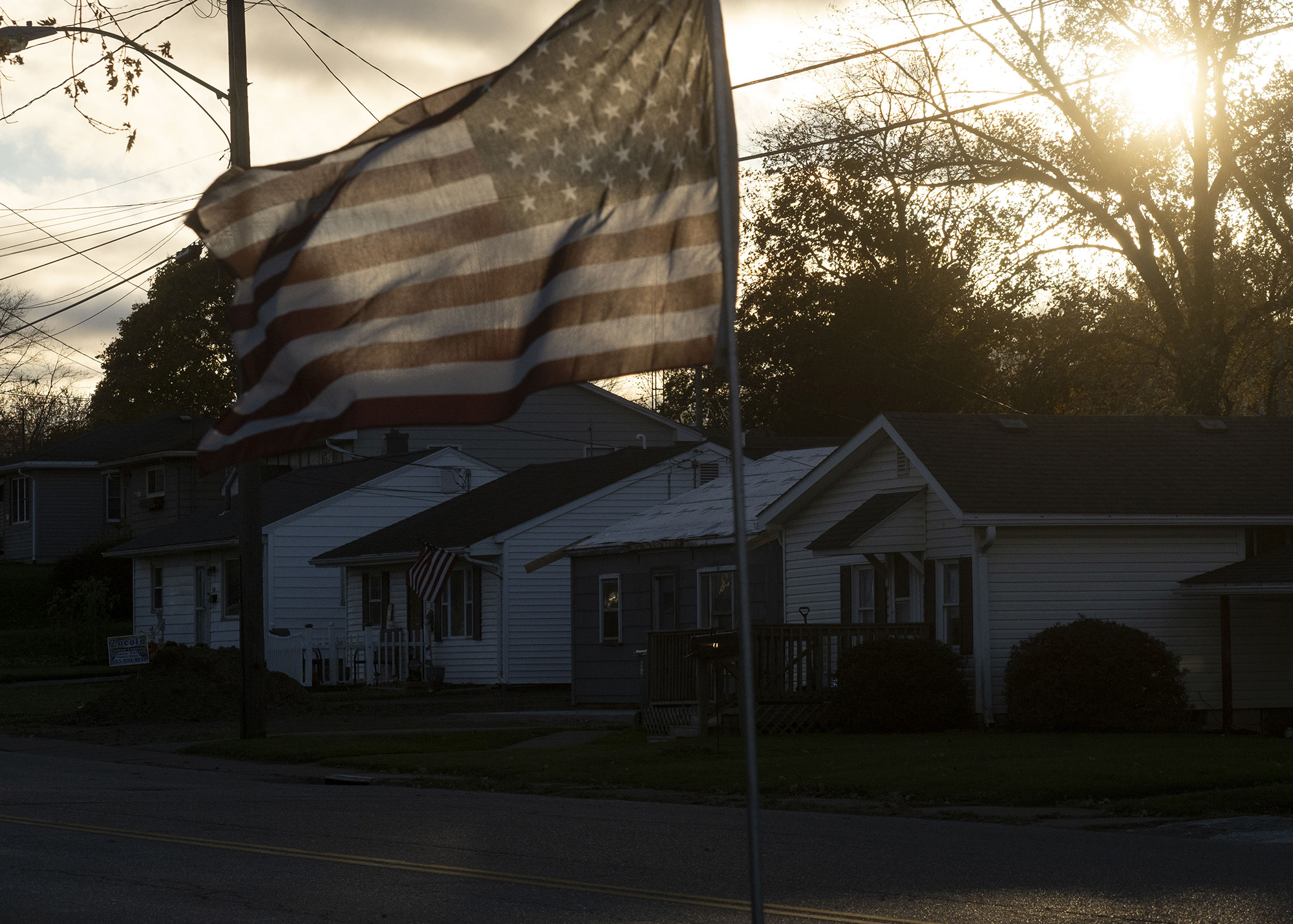

The essence of Wallace’s sentiment was echoed by most people with whom I spoke; the crash showed them the government was, and is, not functioning to serve them. East Palestine residents witnessed up close how partisan obligation, corporate influence, and the complex quagmire of state, federal, and local jurisdictions made it challenging to accomplish anything that would have meaningfully improved their lives.
The problem was not a complete lack of action. Officials from the Environmental Protection Agency and Federal Emergency Management Agency, as well as state regulatory agencies, have been stationed in town since February 2023, overseeing a $235 million cleanup process by Norfolk Southern and helping to coordinate aid for affected residents. But people in East Palestine are still frustrated that the effort has yielded, in practical terms, too little payoff.
Residents are sick, or worry of illnesses to come. Many are in debt from costs incurred fleeing their homes. Some independent testing has shown air, water, and soil with persistent traces of toxic chemicals. Community fabric has been strained by legal battles. There is tension on how to move forward, and whom to blame.
Community advocates have made repeated, specific requests of the federal government. They want a federal disaster declaration, which has languished on Biden’s desk since it was requested by Ohio Gov. Mike DeWine in July 2023; regular indoor air monitoring for homes, businesses, and government buildings with publicized results; and government-funded medical testing and health care. Above all, they want legislation that will more effectively regulate the safety of railroads and the transportation of hazardous chemicals. These goals have not been realized.
Facing a tight 2024 election, Democrats needed to take any opportunity to win over working-class voters in the Midwest—and the cleanup of East Palestine offered one. But the Biden administration’s missteps have largely confirmed residents’ lack of faith in the Democratic Party. Early failures by the EPA eroded initial trust. The president’s hesitation to sign a federal disaster declaration and the fact that it took him more than a year to visit the area have cemented their frustration.
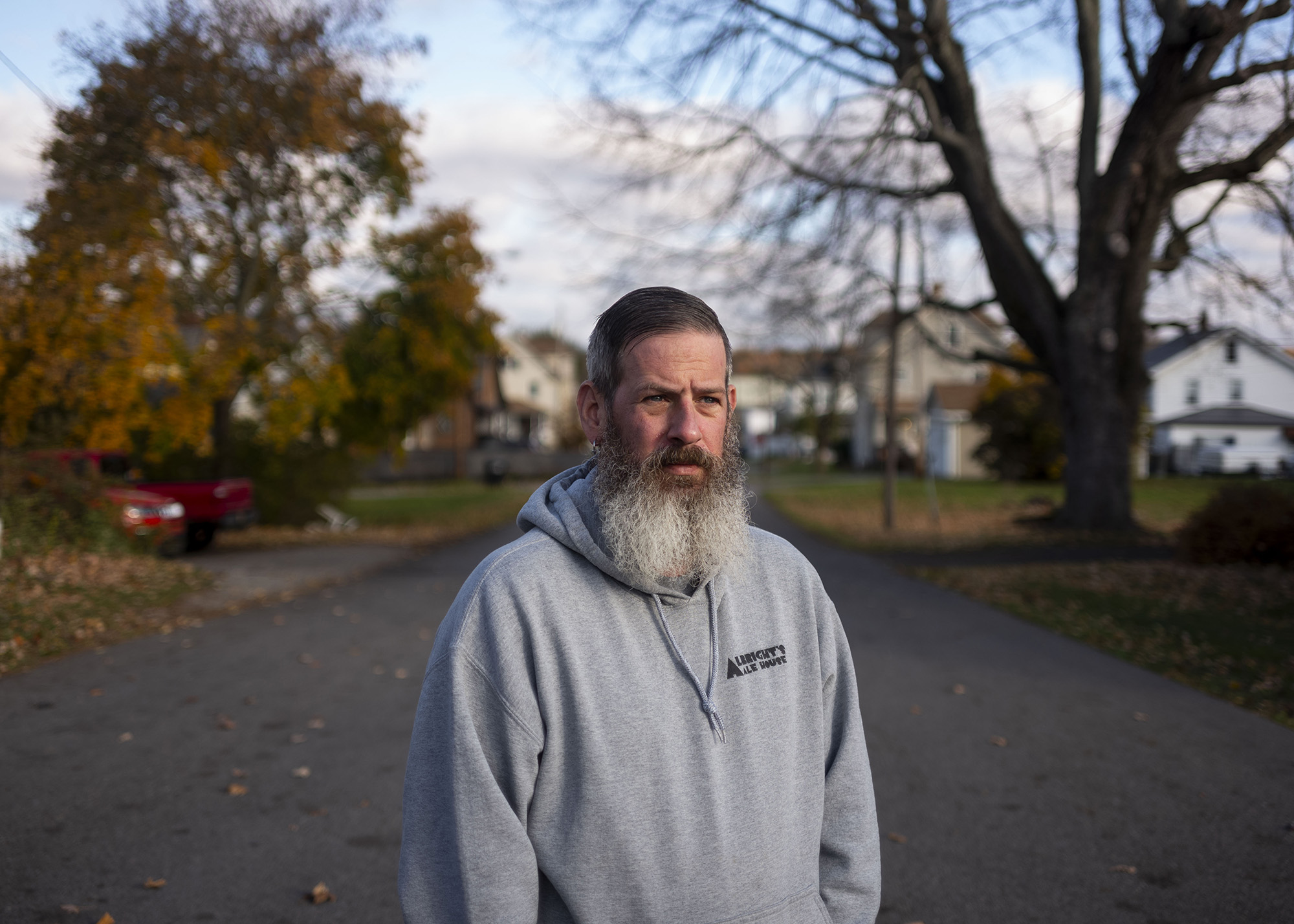
“I think if they were to have come out here and done some work and given us the help we needed at the time, they could have probably swayed a lot of voters,” said Chris Albright, an East Palestine resident who lost his job as a gas pipeline worker after his heart swelled and he was diagnosed with congestive heart failure a few weeks after the derailment.
Albright said that while the region is “solidly conservative Republican,” it had been a working-class Democratic stronghold when he was growing up. Despite being a registered Democrat, Albright hasn’t voted for the party since Obama’s first term and doesn’t intend to this time.
“Sometimes I almost feel bad for these elected officials,” said Hilary Flint, whose family home in Beaver County, Pennsylvania, lies less than 4 miles from the derailment. A self-described leftist, Flint told me she would be supporting Vice President Kamala Harris in the election.
“I’m in these meetings and [officials] are like, ‘Well, I don’t have the power,’ and that’s a phrase that’s been kind of pissing me off over the past year. I understand that we have a government with checks and balances,” she said. “But there are so many ways that someone in government can use power—propose a bill, hold a press conference—that I think they’re a little bit meek about.”

Where the Democrats failed, Vance initially succeeded. He gained the trust and respect of East Palestine voters by showing up. Those with whom I spoke were impressed by his availability and attentiveness—and the consistent presence and attention of his staff at community meetings. Multiple people said they had met with Vance individually and felt he truly listened to them.
Flint, from Pennsylvania, said she spoke with Vance and his staff more than any representative from her own state. She was surprised and impressed by his support for “pretty leftist” demands, like calling for Medicare benefits eligibility for those affected by the derailment under Social Security Act 1881A, which applies to people suffering from environmental exposures in a federally declared emergency. “In no universe would people now believe that JD Vance wrote letters of support for that, but he did, like, not even a year ago,” she said.
Misti Allison, who testified alongside Vance at a US Senate Commerce Committee hearing on railway safety in March 2023, found Vance’s care for the community to be genuine. She also saw his response to the derailment “really propel his political career.” Here was a Congress member who literally wrote the book on Rust Belt decline, taking up the defense of a town that right-wing media deemed abandoned by Biden now and Democrats for decades. When former President Donald Trump chose him as a running mate the following year, it helped Trump double down on his narrative of his run as a backlash on behalf of the American working class.
“I would surely hope that [Vance] would make good on that commitment to do whatever he could in his power to ensure that East Palestine isn’t forgotten,” Allison told me, “and that the community is made whole again.”
Still, Vance’s ability to help has been limited. Allison’s testimony preceded the committee’s passage of the Railway Safety Act, a bill co-sponsored by Vance, Sen. Sherrod Brown (D-Ohio), and Sens. John Fetterman (D-Penn.) and Bob Casey (D-Penn.) that would impose stronger regulations on rail transport. (Shortly after the derailment, President Biden suggested that the train’s malfunctioning was the fault of regulatory rollbacks under Trump in 2017, but experts have clarified that those didn’t apply to this particular calamity.)
More than a year later, the Railway Safety Act has yet to receive a vote from the full Senate, and Vance has come under fire for weakening the language of the bill to appease lobbyists and gain Republican support.
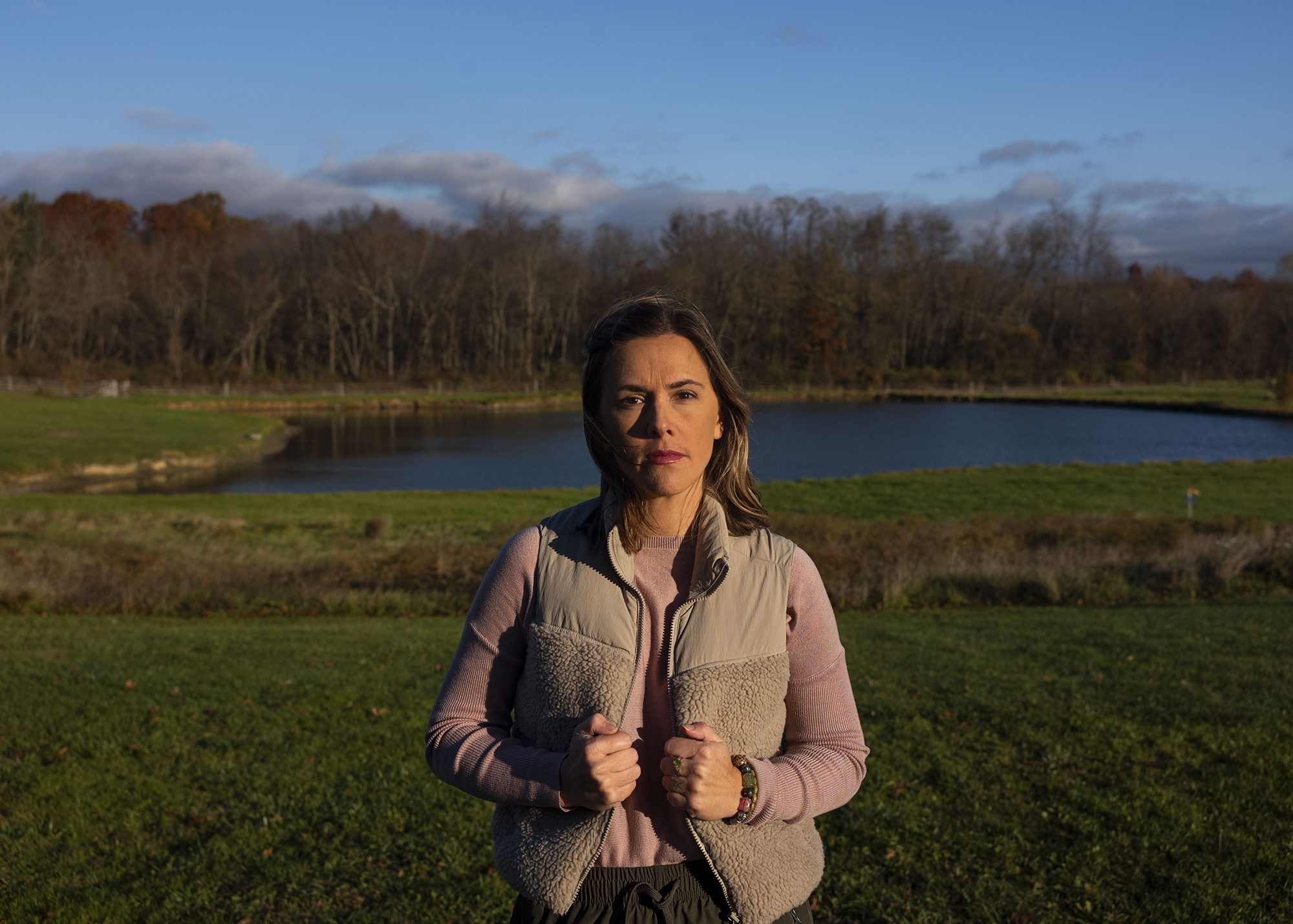
The fact that the bill has yet to pass makes Jess Conard, whose family has been in the East Palestine area for generations, skeptical of Vance’s effectiveness as a leader and legislator.
“You have to pull these important tasks across the finish line, and he has not done that,” she said. “As somebody who could potentially be vice president of our country, it’s concerning that he can’t effectively support the needs of one small rural community, even if those needs are complicated.” (Vance did not respond to a request for comment.)
Conard lives just a couple of miles from the derailment site with her four children and two dogs, on a country road named for one of her ancestors. The walls of her dining room, which looks out over a neighboring paddy of horses, are lined with Ohio-themed art: a heart within the state’s outline, a HOME IS OHIO poster.
The derailment and its impact on her home and family’s health, she said, launched her into a level of political involvement she’d never anticipated. She left a career as a speech pathologist to become an advocate for a national anti-plastics campaign, speaking at conferences and in Congress about her community’s experience with chemical pollution.
It’s a similar story with Allison, Wallace, Flint, and Albright. They all found themselves taking on advocate roles after the derailment, becoming more politically engaged than ever before in their lives. Among them, they’ve made multiple visits to Congress, the White House, Gov. DeWine’s mansion, and the Ohio and Pennsylvania state legislatures. Allison ran for mayor last fall, and Conard explored a bid for the Ohio Statehouse.
That reflects a phenomenon that political scientist Daniel Aldrich has observed over years of research: When a disaster happens in a community, be it a hurricane or chemical spill, the members get civically activated. “That personal experience of going through a disaster and being disappointed in the government or being happy with them, whatever happened, will then trigger a behavioral change where you vote more, write more letters, show up at more demonstrations,” he said.
With the close-up perspective afforded by her newfound advocacy, Conard has been increasingly disillusioned by the apparent corruption of some elected officials, a two-party system that doesn’t aptly represent the electorate, and corporations’ exploitation of loopholes in existing environmental regulations. “My stance has always been, ‘go vote, get your voice heard,’” she said. “And I think my experience with the lack of enforcement of the policy that we have has been very frustrating. Like, does my vote really matter?”
She emphasized that in spite of those frustrations, she voted early: “I want to vote because I want to believe that the system works. I want to believe in this country, and that there are still good people doing good work.”
That would not mean voting for Trump. “He could give everyone in my community $10 million and pat us on the bottom and move us along our way,” she said, “and I will never vote for him.”
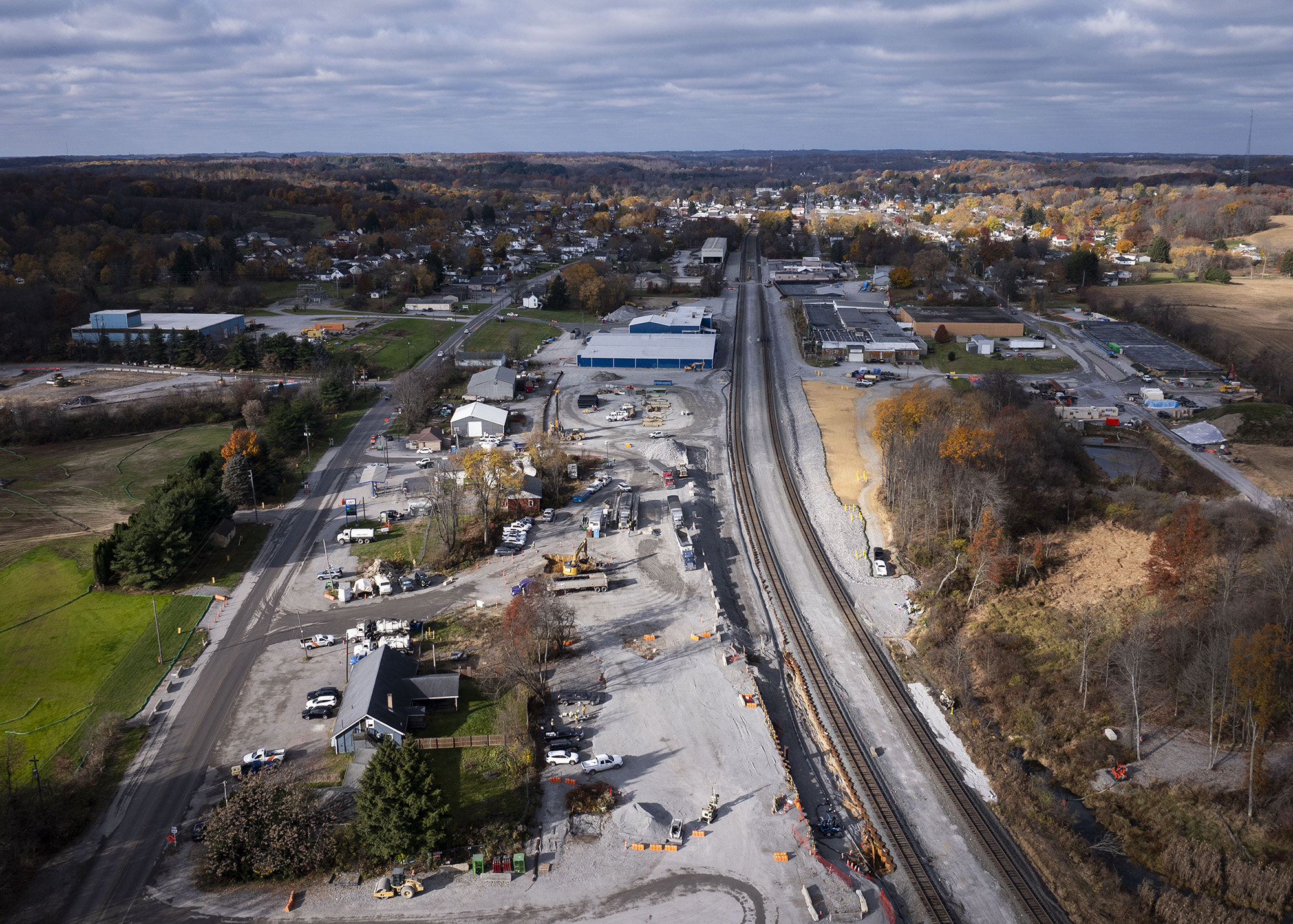
Beneath the electoral politics, there’s a fundamental, uncomfortable question at the heart of any incident of industrial pollution on American soil like the one in East Palestine: How much is the government obligated to help?
Until recently, the norm was not much, says Aldrich. But the federal government has increasingly intervened in major pollution crises in the last 50 years: Love Canal in 1978, Three Mile Island in 1979, and the Deepwater Horizon spill in 2010, among others.
In these disasters, there are “two sets of villains,” Aldrich told me: the private industry that caused the disaster and the regulatory agency that purportedly controls the industry. Clean-up is one part of the equation; prevention is the other. “Because of pretty loose hands from the government, those private firms have gotten away with a lot,” Aldrich said. “I’m sure they’re thrilled to have a second villain [of the government] in the story, because it takes some of the pressure off of them.”
Norfolk Southern is expected to compensate East Palestine residents through two different lawsuits: one brought by the Department of Justice, and the other a class action for property damage and personal injury. The former is due to be finalized soon, with a settlement of $310 million; it includes money for medical testing and care, ongoing water monitoring, and damage payments to some residents. It also requires Norfolk Southern to incorporate recommendations from the National Transportation Safety Board into its business practices. The settlement has come under attack by both Ohio Attorney General Dave Yost and Vance as insufficient for a community that faces increased cancer risk and massive loss of property value.
The class action suit—settled in September for $600 million—has been fraught with controversy. Residents who did not want to forego their right to sue Norfolk Southern in the future had to voluntarily opt-out as plaintiffs, and the damages likely will not be enough for families who want to leave a place they see as irreparably polluted and changed. Albright, for example, expects to receive $35,000 in property damages—the $70,000 maximum payout, minus what Norfolk Southern already paid for his family’s relocation for a few months.
“I haven’t heard from any politicians since the settlement, so I don’t know if they’re thinking, ‘they’ve got their millions, everything’s okay,’” said Rick Tsai, one of fewer than 400 plaintiffs to opt out of the settlement. He told me he is selling his home to move 15 miles further east. And that the problems are far from over.
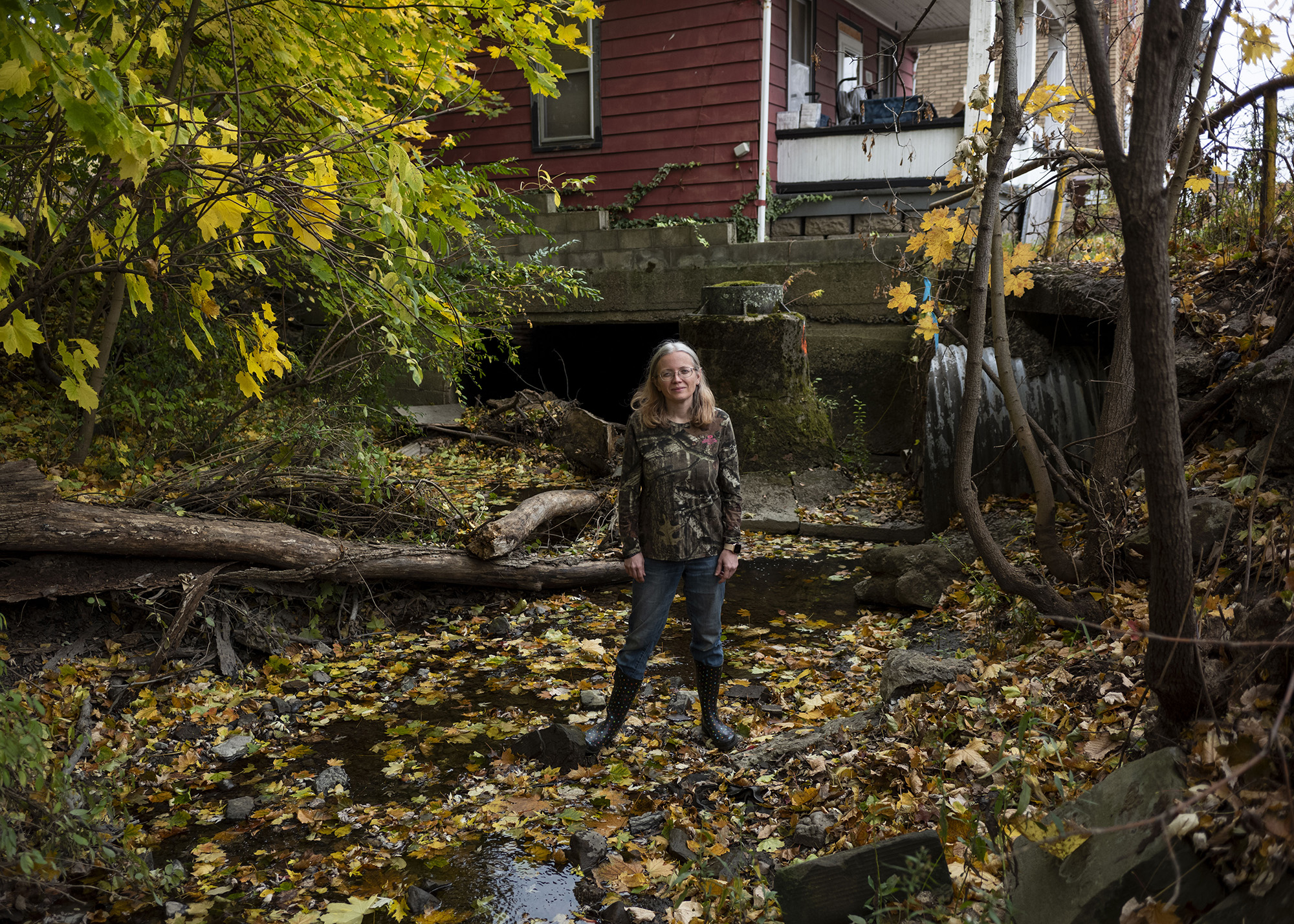
Tsai is one of a small cohort who has documented evidence of pollution from the chemical spill and pursuant vent-and-burn. On September 23, 2024, another member of the group, Christina Siceloff of South Beaver Township in Pennsylvania, posted a video of the familiar oily sheen in Sulphur Run, the creek adjacent to the spot where Vance had filmed his video.
She says she wanted to use these videos to warn her neighbors of continuing danger, but also to send a message to the government: “How can you leave us here and call it safe? Like this”—referring to the pollution in the creek—“is possibly why we’re sick. Why are you saying that everything is OK?”
Siceloff and her neighbors have had to face a difficult realization: that even with a flurry of media coverage, the support of a rising star in politics, and a clear culprit for the damage to their homes, the government did not do enough.
“At this point, I don’t feel like I’m going to vote for anyone, because none of them have done anything to help East Palestine,” she said. “I do feel like Vance has probably done more than most people, but in the end we’re still sitting here with no help.”















